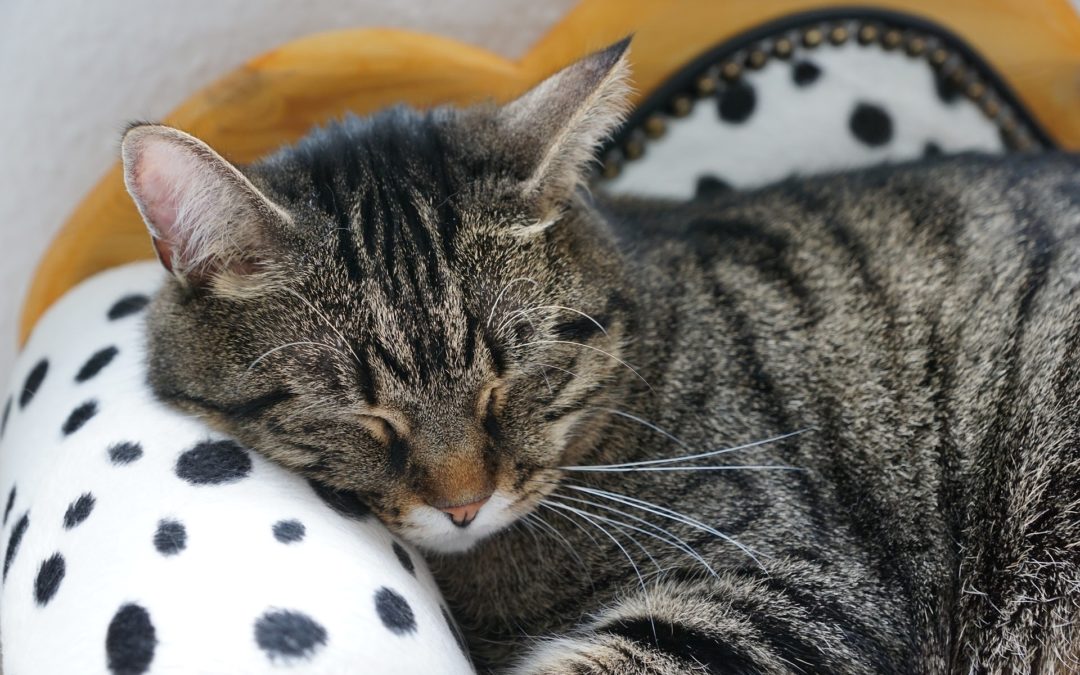Can cats catch colds? The answer is yes, cats can catch colds just like humans can. Sneezing and sniffling are common symptoms that may indicate your cat has an upper respiratory infection. You are probably wondering what else to look for and what to do to help your feline feel better. Our team at Anasazi Animal Clinic in Gilbert has put together some tips so that your feline can get back to her old self in no time!
How can cats catch colds?
Colds in cats are caused by viruses, most commonly feline herpesvirus (FHV-1) and feline calicivirus (FCV). Most cold viruses are species-specific, meaning they cannot be passed to or from humans, but they can spread quickly between cats—especially in close quarters, such as shelters or boarding situations. Outdoor cats are also more likely to catch a cold than an indoor cat. If your cat comes down with a cold, it’s likely she came into contact with another cat who was sick.
Do cat colds go away on their own?
Most feline colds last around seven to ten days without veterinary treatment and are generally not cause for concern. Even with treatment, however, the virus that causes feline colds stays in your cat’s system, making recurrent colds possible down the road.
Signs and Symptoms of Colds in Cats
Mild Symptoms:
- Sneezing
- Sniffling
- Watery eyes
- Runny nose
- Lethargy
- Low-grade fever
More serious symptoms:
- Diminished appetite
- Coughing
How to Take Care of a Sick Cat
If your cat has a cold, you can help her feel more comfortable by wiping her watery eyes with a warm washcloth. You can also use a humidifier to ease any symptoms of a dry, scratchy throat. If your cat seems very congested, you can put her in her cat carrier with a bowl of hot water and cover both with a blanket for 15 minutes. This may help make breathing a little easier for her. To keep her warm, place an extra blanket in her bed or favorite napping spot.
It’s important for your cat to continue to eat and drink normally. Warming canned food up might make the food more appetizing and make it a little easier to swallow.
Do not ever give your cat any medication or supplement without a prescription from your vet.
When to Take Your Cat to the Vet
Like human colds, in most cases, cat colds are harmless and will go away within 7-10 days. However, some upper respiratory infections can be serious and may lead to pneumonia. If your cat does not show signs of improvement after 4 or 5 days, be sure to give your vet a call to prevent this serious complication from developing.
If you have an older cat, kitten, or a cat with other health conditions, they may be more susceptible to the effects of a cold and should be monitored more closely. If your cat has a cold and is nursing or hasn’t been vaccinated yet, make an appointment as soon as possible.
In any case, if your cat begins coughing, has difficulty breathing, or loses interest in eating or drinking, give us a call right away. Cats can go into starvation mode very quickly (within 2-3 days) so it is crucial that they be treated as soon as possible.
Compassionate Cat Care in Gilbert
Prevention is the best medicine when it comes to cat colds. Ask us about our preventative wellness plans to keep your cat healthy and happy. But we understand that not everything can be prevented. If you have any concerns about your cat, please reach out to us at Anasazi Animal Clinic to schedule an appointment. We are happy to answer any questions you may have to get your furry friend back on her feet so she can get back to doing what she loves most.
Image used under creative commons license – commercial use (1/21/2021) by photosforyou from Pixabay

